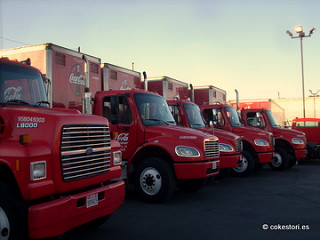Implications of the Automotive Sales Rebound on the Supply Chain

Automotive sales are on the rebound, as forecasts show that new car sales in the U.S. could exceed 15 million in 2016. Additionally, automakers are launching approximately 500 new car models on the market this year. This situation puts a lot of pressure on the auto parts supply chain industry. Some worry that supply won’t be able to meet demand and that it will jeopardize the automotive market’s recovery.
Conditions in the Automotive Industry
Since the 2008 economic recession in the U.S., new car sales have been low. It’s no surprise that consumers would would want to save money and buy used vehicles or wait to buy a new car altogether. Now that economic conditions are improving in the U.S. as a whole, however, new car sales are up in a big way.
The problem is that auto parts suppliers consolidated operations during the recession. This reduced their capacity to make parts. Three major auto parts factories in Detroit even filed for bankruptcy as a result of the 36 percent drop in sales between 2007 and 2009. It is going to take some time for the auto parts industry to expand and exceed previous production capacity.
Nissan Americas’ research and development head Carla Bailo said, “Everyone has parts shortages … The supply chain is one of our biggest threats. Everyone cut back and is now ramping up. We can’t get up to speed as quickly as in the past.”
A New Type of Consumer
Automakers are getting frustrated with suppliers because they can’t wait for auto parts to be manufactured. At the same time, auto parts suppliers are hesitant to increase capacity because they don’t want to get into the same situation they encountered before. After all, some analysts predict that another recession is on the horizon.
Many consumers have also changed the way they view their cars and transportation needs as a whole. Writing for Forbes, Micheline Maynard states that consumers have “declared their independence from their automobiles.” Millions of consumers have turned to public transportation, biking, and ride sharing, which reduces their need for automobiles. Automakers haven’t yet convinced consumers that they still need personal vehicles to get around in an efficient manner.
The Future of Auto Sales
The good news is that the auto parts industry has a healthier approach to supply and demand than it did in the past. The companies that survived the recession can better plan for the ups and downs of the economy without expanding business to a point they can’t support if conditions change drastically again.
Ford president Joe Hinrich said that the automaker “is adding shifts at plants, increasing capacity by 400,000 vehicles last year and preparing to add another 200,000 this year to meet demand.” Instead of opening new factories to meet demands, Ford is adding shifts, which can be slowed if necessary.
The auto industry as a whole is recovering from the recession, but suppliers and automakers alike are taking a smarter approach to the way that they do business. They can’t afford to take another hit like they did in 2008, since that could jeopardize their recovery.







